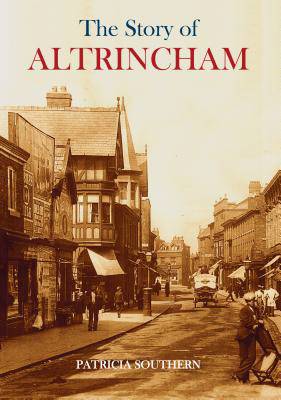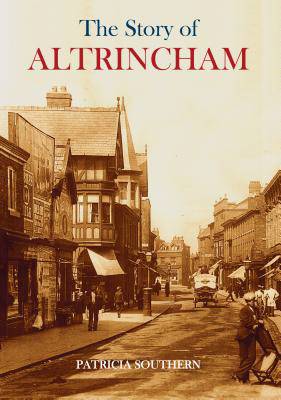
En raison d'une grêve chez bpost, votre commande pourrait être retardée. Vous avez besoin d’un livre rapidement ? Nos magasins vous accueillent à bras ouverts !
- Retrait gratuit dans votre magasin Club
- 7.000.000 titres dans notre catalogue
- Payer en toute sécurité
- Toujours un magasin près de chez vous
En raison de la grêve chez bpost, votre commande pourrait être retardée. Vous avez besoin d’un livre rapidement ? Nos magasins vous accueillent à bras ouverts !
- Retrait gratuit dans votre magasin Club
- 7.000.0000 titres dans notre catalogue
- Payer en toute sécurité
- Toujours un magasin près de chez vous
Description
This is an accessible and highly illustrated history of Altrincham, a vibrant town in Cheshire. Altrincham, 'the settlement of the people of Aldhere' owes its origin to the initiative and enterprise of its early medieval inhabitants, who established a market, and re-routed the old Roman road from Chester to Manchester so that travellers passed through the town instead of around it. The market was probably well established before it received its official charter in 1290, making it the focal point for buying and selling for the people of the surrounding settlements and villages of Bowdon, Hale, Timperley and Dunham Massey. Good transport links contributed to the expansion of the town. In the later eighteenth century the extension of the Bridgewater canal, the first artificial navigation in England, passed through the environs of Altrincham on its route from Manchester to Runcorn, giving easy access sea lanes of the west coast.From the mid-nineteenth century the steam railway with its terminals at Manchester and Altrincham linked the industrial cotton mills with the more rural market town. The ease of transport encouraged a number of wealthy Manchester cotton magnates and businessmen to build large mansions in and near Altrincham, so that they could live in a healthy semi-rural environment and commute to their offices in the city.The steam trains were replaced in the 1930s by the electrified railway, another 'First' for the area, and latterly by the Metro, continuing the transport link between Altrincham and Manchester. Since the 1960s there have been far-reaching changes in Altrincham, buildings have disappeared, new ones have been built, and in some cases street layouts have altered. This book shows how Altrincham used to look and documents the changes. This is the story of Altrincham by an expert local historian. It is the only history of Altrincham available. It is highly illustrated with over 200 illustrations and old photographs.
Spécifications
Parties prenantes
- Auteur(s) :
- Editeur:
Contenu
- Nombre de pages :
- 96
- Langue:
- Anglais
Caractéristiques
- EAN:
- 9781848680807
- Date de parution :
- 15-11-08
- Format:
- Livre broché
- Format numérique:
- Trade paperback (VS)
- Dimensions :
- 165 mm x 234 mm
- Poids :
- 366 g

Les avis
Nous publions uniquement les avis qui respectent les conditions requises. Consultez nos conditions pour les avis.






